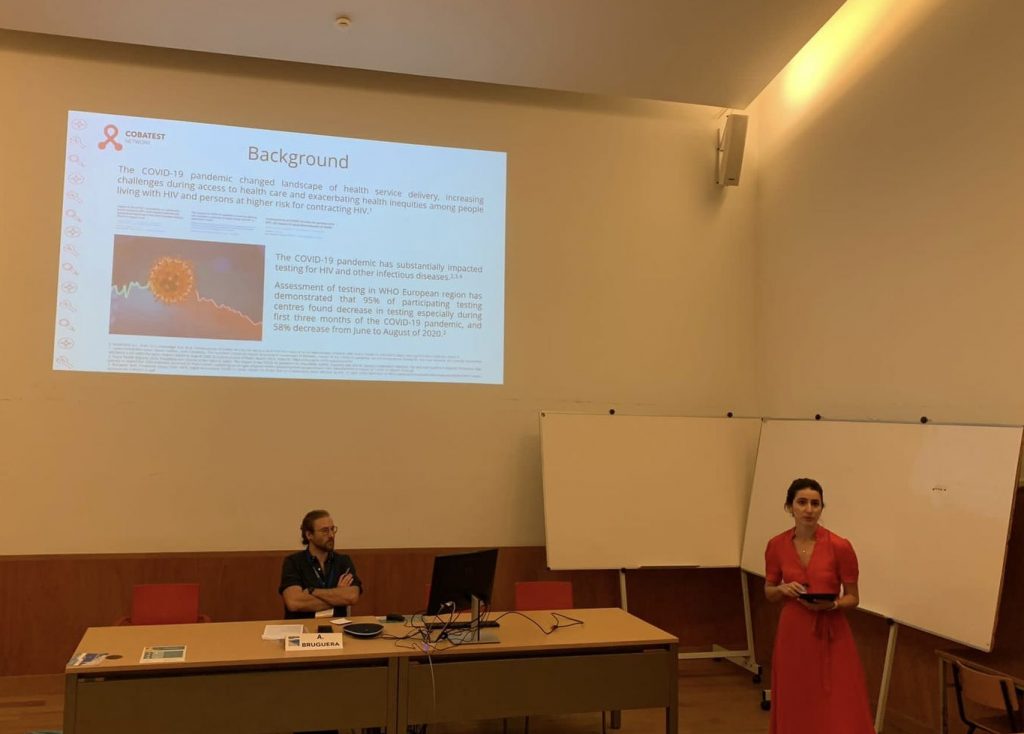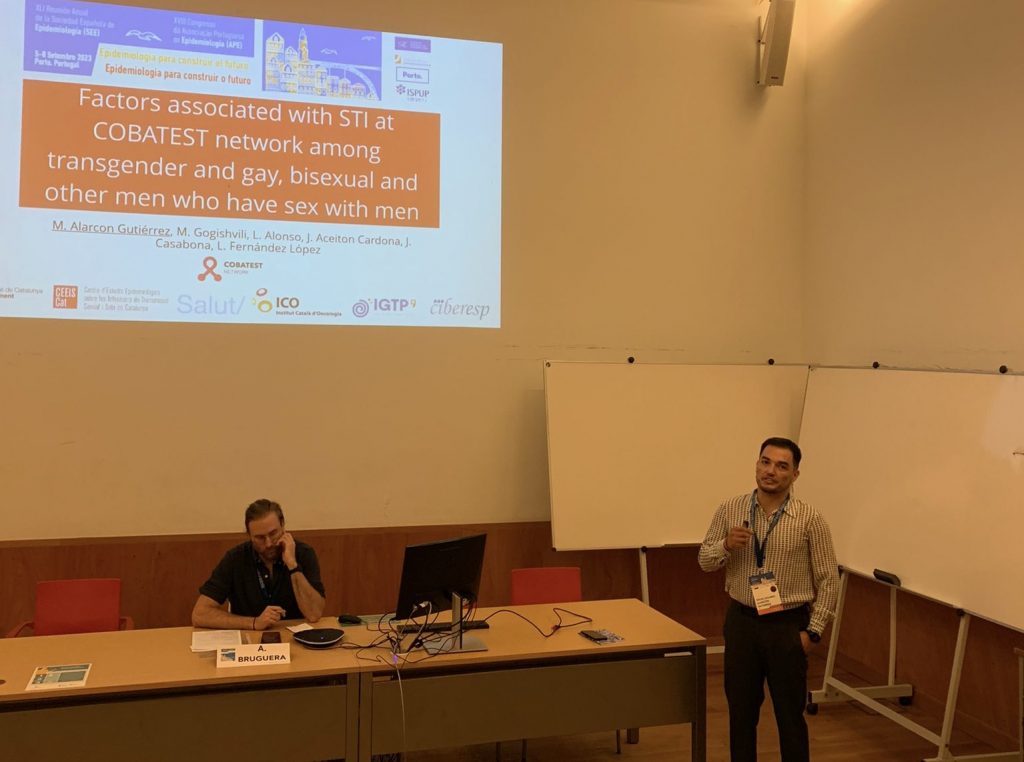
The XLI Spanish Epidemiology Society (SEE) meeting took place from September 5th to 8th, 2023 in Porto, Portugal. Two abstracts were presented by COBATEST network at the meeting.
Dr. Megi Gogishvili presented an abstract on the impact of COVID-19 on HIV-testing among community centers in Catalonia.
Presentation consisted of time series analysis of the testing trends from 2018 to 2020. Four periods were analysed: pre-lockdown (PRE), lockdown (LD), de-escalation (DE), and new normality (NN). In total, 18,265 tests were reported. Males comprised 56.1% of testers in PRE, 71.4% in LD and 49.5% in NN, while largest proportion of females were found in DE (54.1%). During PRE 10,034 tests were performed, during LD 82 (84.4% less than expected), 211 during DE (62.5% less), and 2305 in NN, which is 12.5% less than predicted by the model according to the previous trends. Males had the highest difference in expected to observed tests (LD = 86.3%, DE = 73.9% and NN = 24.3% less than expected). Females tested 81.1% (LD) and 37.5% (DE) less than expected and 2.9% more than expected during NN. Transgenders tested 86.7% less than expected in LD, 92.9% in DE, and 25.2% in NN. Meno who have sex with men (MSM) tested 87.9% less than expected during LD, 84.8% during DE, and 34.5% during NN. Sex workers (SWs) tested 86.5%, 83.1%, and 33.8% less than expected. People who inject drugs (PWIDs) tested 62.5%, 46.2%, and 33.3% less than expected. Migrants tested 84.9%, 51.1% less than expected and 10.4% more during NN. Please find full presentation online.

Dr. Miguel Alarcón Gutiérrez presented an abstract based on analysis of quantitative data collected by COBATEST network members from 2013 to 2022 concentrating on transgender individuals and men who have sex with men (MSM).
A presentation consisted of analysis of HIV and other STI associated factors among MSM and transgender individuals in 60 European community-led testing centers from COBATEST network. Out of 81,776 testers were GBMSM and 1,603 were transgender individuals. Total reactive testing prevalence among GBMSM population was 5.89% (CI: 5.64-6.14), and 12.48% (CI: 10.90-14.19) among transgender individuals. Multivariate analysis in GBMSM showed that factors associated with reactive testing were: age (aOR=1.01; CI: 1.00-1.01), being a migrant from outside of European Union (EU) (aOR=1.77; CI: 1.56-2.00), have been previously tested for HIV (aOR=1.37; CI: 1.19-1.59), having any risk exposure as motivation for testing (aOR=1.64; CI: 1.46-1.85), condomless penetration during last sexual intercourse (aOR =1.34; CI: 1.21-1.49), previous STIs (aOR=2.04; CI: 1.78-2.33), and receiving money or drugs for sex during last 12 months (aOR=1.61; CI: 1.35-1.93). In transgender population, factors associated with reactive testing were being a migrant from outside of the EU (aOR=2.90; CI: 1.55-5.42), having any risk exposure as motivation for testing (aOR=1.95; CI: 1.39-2.74), previous STIs (aOR=1.60; CI: 1.07-2.39), and receiving money or drugs for sex during last 12 months (aOR=2.04; CI: 1.10-3.77). Please find full presentation online.

